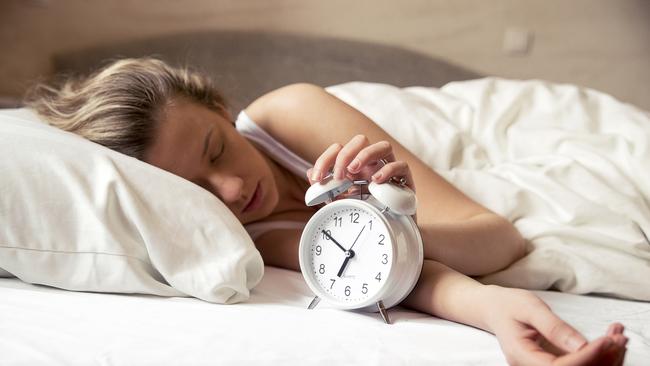How coronavirus pandemic has affected your sleep
There’s no doubt the coronavirus pandemic has affected every aspect of our life, now Melbourne researchers have discovered how our sleep habits have changed. Here are some simple strategies to help you get some much needed rest.
HS Coronavirus News
Don't miss out on the headlines from HS Coronavirus News. Followed categories will be added to My News.
If you snooze you lose, precious sleep that is.
Changes to routine and anxiety caused by coronavirus have created an insomnia epidemic, with extra time spent snoozing in the morning one of the biggest culprits.
Sleep specialists told the Sunday Herald Sun reports from patients of night-time sleeplessness had spiked during the COVID-19 pandemic.
And while anxiety about the disease, job security stress and extra pressures such as home schooling were playing a big part, so too was the change to many Victorians’ routines.

“Anxiety is a strong driver towards insomnia,” the Royal Melbourne Hospital’s Associate Professor Jeremy Goldin said. Changes to our “entrenched” circadian rhythm — our internal 24-hour clock — through sleep-ins, also worked to suppress our body’s drive to fall and stay asleep at night, and to reduce our level of “wakefulness” during the day, he said. “People working from home may not need to start work at a particular time each day or they may be able to wake up later … as routine is lost, they lose that sleep-wake rhythm and lose that drive to establish and maintain sleep.”
The Epworth Sleep Centre’s Dr Eli Dabscheck said working from home could also lead to a lack of relaxation and “unwinding time” in the evenings, which made sleep harder to achieve. Using laptops or other devices in bed also worked against getting a full and restful night’s sleep, he said.
“For a good night’s sleep, you need to go to bed ready to sleep, not thinking about what’s happened, or what you need to do the next day, not using your computer, phone, iPad or any other device in bed,” Dr Dabscheck said.
CHANGES TO MAKE AT HOME TONIGHT
– If you can’t get to sleep within 30mins of going to bed, get up and sit in another room in subdued lighting. When you feel sleepy, go back to bed. This helps link bed with sleep in your mind.
– Keep the hour before bed as “wind down” time. Develop a routine that prepares your body and mind for sleep. Listen to quiet music or a relaxation app.
– The bedroom should be quiet, dark and comfortable. No electronic devices.
– We do far better with regular hours of sleep. Going to bed and getting up at similar times is good.
– Regular snoring is normal, but loud snoring on most nights is not and should be checked out.
SIMPLE WAYS TO GET A GOOD NIGHT’S SLEEP

